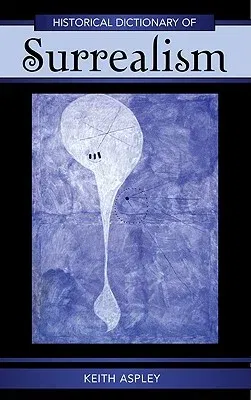Keith Aspley
(Author)Historical Dictionary of SurrealismHardcover, 1 September 2010

Qty
1
Turbo
Ships in 2 - 3 days
In Stock
Free Delivery
Cash on Delivery
15 Days
Free Returns
Secure Checkout

Part of Series
Historical Dictionaries of Literature and the Arts
Print Length
574 pages
Language
English
Publisher
Scarecrow Press
Date Published
1 Sep 2010
ISBN-10
0810858479
ISBN-13
9780810858473
Description
Product Details
Author:
Book Format:
Hardcover
Country of Origin:
US
Date Published:
1 September 2010
Dimensions:
21.34 x
14.48 x
4.06 cm
Genre:
Reference
ISBN-10:
0810858479
ISBN-13:
9780810858473
Language:
English
Location:
Lanham, MD
Pages:
574
Publisher:
Weight:
861.82 gm